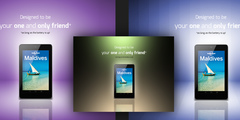Large file size on TIFF to JPEG conversion
This discussion is connected to the gimp-user-list.gnome.org mailing list which is provided by the GIMP developers and not related to gimpusers.com.
This is a read-only list on gimpusers.com so this discussion thread is read-only, too.
6 of 8 messages available
| Large file size on TIFF to JPEG conversion | James Cobban | 30 May 17:00 |
| Large file size on TIFF to JPEG conversion | Leonard Evens | 30 May 17:56 |
| BLU0-SMTP118A5D8EF12598A3AB... | James Cobban | 30 May 18:50 |
| Large file size on TIFF to JPEG conversion | John Coppens | 30 May 22:34 |
| BLU0-SMTP36E383D4553DD200CC... | James Cobban | 31 May 04:54 |
| Large file size on TIFF to JPEG conversion | Ernie Wright | 30 May 19:50 |
| Large file size on TIFF to JPEG conversion | DJ | 30 May 21:48 |
| Large file size on TIFF to JPEG conversion | Jernej Simon?i? | 30 May 21:07 |











